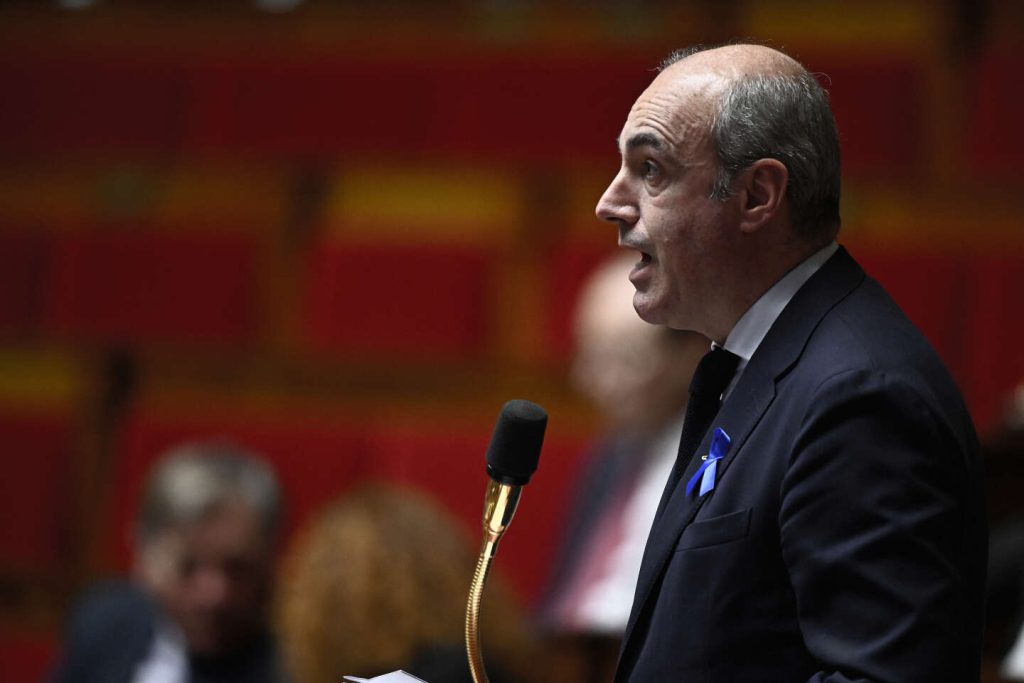Olivier Marleix, the president of the parliamentary group Les Républicains, made a speech at the National Assembly on March 26, 2024. The party leaders quickly realized that Gabriel Attal, the Prime Minister, was able to speak to both the right and their current or lost voters, despite initially trying to portray him as a former Socialist activist. In his address, Attal did not hesitate to announce new measures that leaned towards the right, such as reducing the duration of unemployment benefits and increasing the required work time to qualify for an allowance. These decisions have caused division within the governing majority.
Despite this, the Les Républicains party has refrained from coming to Attal’s aid at a time when they are threatening a motion of censure against his government. Olivier Marleix, the party’s group leader, criticizes what he sees as a diversion to deflect attention from the significant public deficit of 5.5% in 2024. He points out that while the state’s deficit will be 173 billion euros, the unemployment insurance will have a surplus of 3 billion euros, questioning the government’s priorities. Some members of Les Républicains, like Nicolas Forissier, are open to working with the government and note similarities between Attal’s proposals and the party’s counter-budget from October 2023.
In their 2023 document, Les Républicains proposed savings of 6 billion euros and advocated for strengthening work incentives. The party also suggested tightening eligibility criteria and potentially reducing the duration of unemployment benefits, aligning them more closely with those in other European countries like Germany and the Netherlands. This measure could particularly affect older workers aged 55 and above. While not all members of the party support the idea of reducing the duration of benefits, it is not a new concept in right-wing politics, having been advocated by figures such as Pierre Méhaignerie, Eric Woerth, and Eric Ciotti.
The debate around unemployment benefits and government spending highlights the ideological differences within Les Républicains, with some members leaning towards a more liberal approach. The party’s past proposals and current reactions to government measures show a willingness to engage in dialogue and potential cooperation, despite moments of disagreement. The political landscape in France is complex and evolving, with different parties and factions jockeying for influence and power, while also seeking to address pressing economic and social issues. As the country navigates various challenges, from budget deficits to unemployment rates, the role of parties like Les Républicains in shaping policy and governance will be crucial.
Overall, the tensions within Les Républicains regarding government policies and their own proposals reflect broader debates in French politics about the role of the state, social welfare, and economic reforms. The party’s reactions to Gabriel Attal’s announcements illustrate the delicate balance between ideological principles and pragmatic decision-making in a changing political landscape. The discussion around unemployment insurance and budget deficits also underscores the need for constructive dialogue and cooperation among different political actors to address the complex challenges facing France in the coming years.


